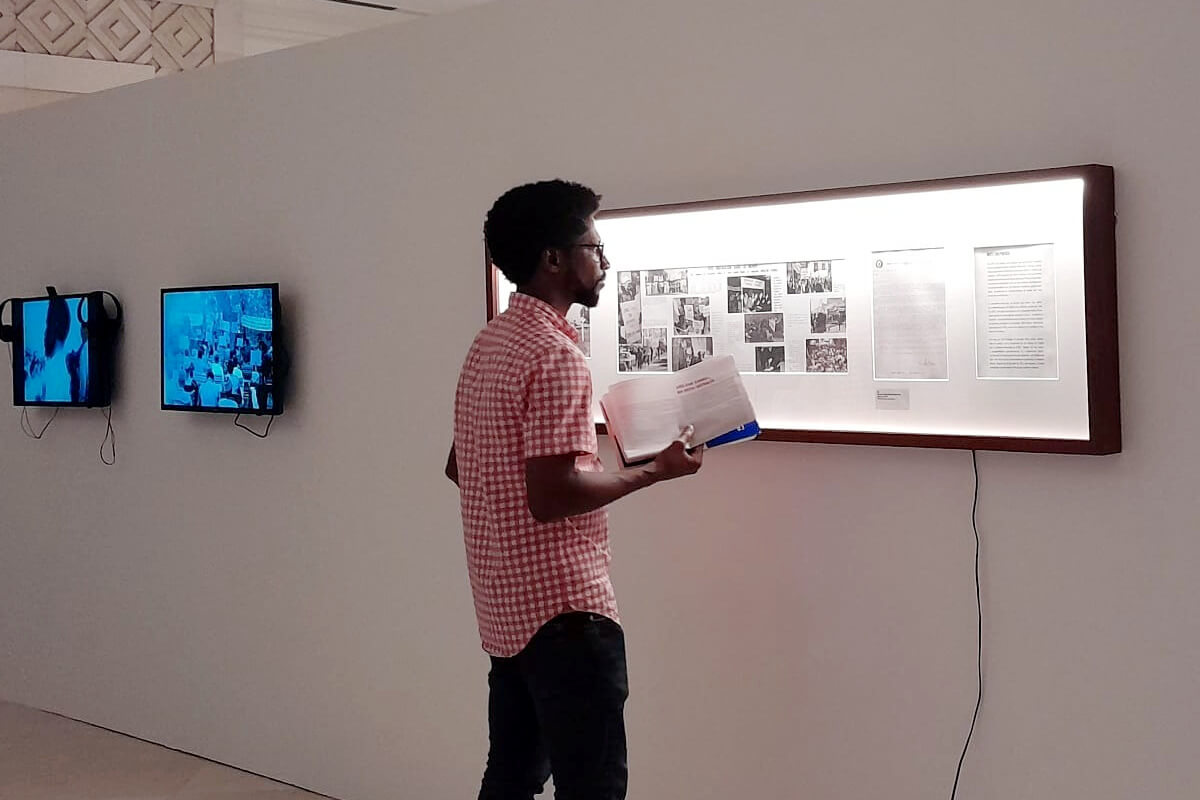Centenary of Amílcar Cabral and the IHC
Sep 11, 2024 | News
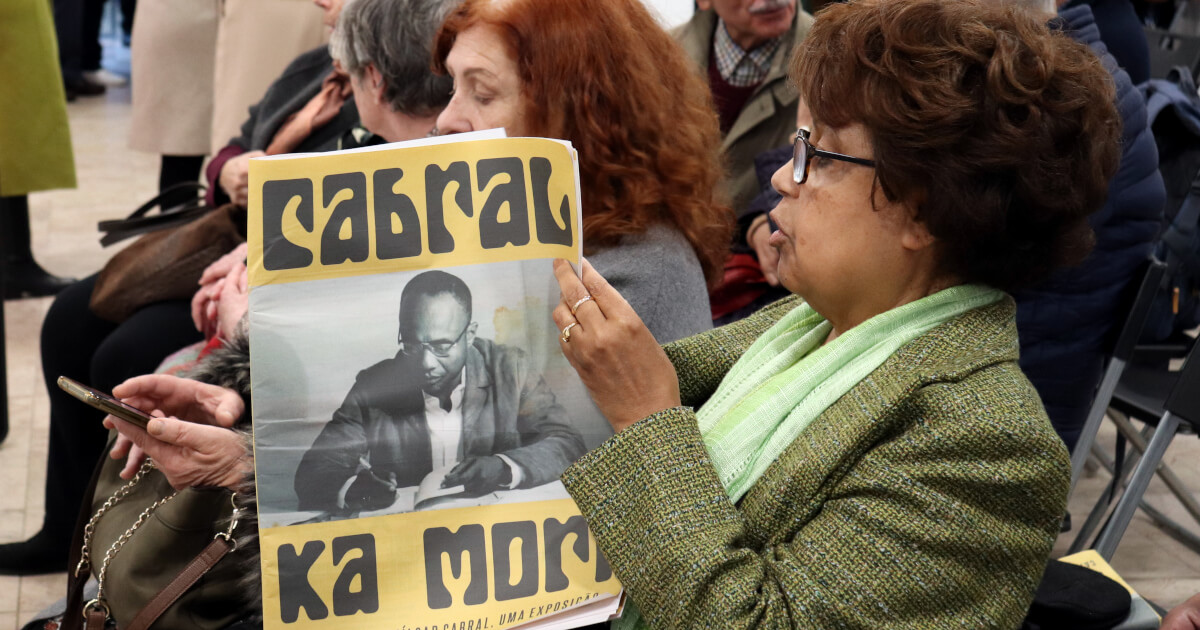
In recent years, the IHC has excelled in research, organising events and publications about Amílcar Cabral. With his centenary on 12 September, we would like to take this opportunity to highlight the various initiatives surrounding one of the main figures in anti-colonial and anti-racist activism and thought.
Amílcar Cabral (1924-1973) was the leader of the African Party for the Independence of Guinea and Cape Verde (PAIGC), a position that brought him great international prominence and left multiple legacies that are still felt today. He was the protagonist of important moments in the global history of our recent past and made a unique contribution to the end of European colonialism in Africa.
FCT project
Although Amílcar Cabral was already a personality studied by several researchers at the IHC, in 2016 the FCT-funded research project Amílcar Cabral, from Political History to the Politics of Memory began, which consolidated this research around an international team. The aim of the project was to analyse the link between Amílcar Cabral’s ideas and their reception. Although his journey had been the subject of multiple memorialised uses, the worldwide notoriety of his figure was unrivalled by any other political figure in the 20th century Portuguese world. The team coordinated by Rui Lopes examined Cabral’s discursive contribution to the constitution of the populations of Guinea-Bissau and Cape Verde; focused on the process of constituting Cabral as a political individual with international projection; and analysed the multiple practices of representation that sought to objectify Cabral’s life and work, from academic biographies to films and documentaries. Of the many scientific publications resulting from this project, we highlight the revised and commented edition of Analysis of a Few Types of Resistance, by Amílcar Cabral, and the dossier “Amílcar Cabral and the Liberation of Guinea-Bissau and Cape Verde: International, Transnational, and Global Dimensions“, published in The International History Review.
Amílcar Cabral Prize
In 2021, the IHC and the Monument to the Discoveries / EGEAC joined forces to create the international Amílcar Cabral Prize, the aim of which is to to ‘promote scientific research and public debate on anti-colonial resistances and colonial processes that marked global history from the 15th century to the present day.’ Two prizes have already been awarded: to Esmat Elhalaby, for his article “Empire and Arab Indology”, published in the journal Modern Intellectual History; and to Sakiru Adebayo, for his article “The black soul is (still) a white man’s artefact? Postcoloniality, post-Fanonism and the tenacity of race(ism) in A. Igoni Barrett’s Blackass”, published in the journal African Studies. Applications for the third edition of the prize are currently being evaluated. Esmat Elhalaby’s work will be published in Portuguese by the Contemporary History Press.
«Amílcar Cabral, an Exhibition»
At the start of the celebrations for the 50th anniversary of the 25 April Revolution, in 2023, José Neves and Leonor Pires Martins were responsible for the design and scientific curation of Amílcar Cabral, an Exhibition, which was displayed at the Baldaya Palace, Lisbon, between March and June. The exhibition traversed Cabral’s life and legacies through 50 objects, in the year that marked the 50th anniversary of his assassination in Conakry on 20 January 1973. In parallel with the exhibition, a series of articles were published in Público — O Mundo de Amílcar Cabral [The World of Amílcar Cabral] — now available in a book of the same name, organised by José Neves, Rui Lopes, and Victor Barros. The exhibition catalogue, entitled Cabral Ka Mori, was also published in 2024 by Tinta da China. Both books will be presented in Lisbon, at the Cape Verde Cultural Centre, on 14 September. As for the exhibition, it travelled to Bissau, where it was on display at the Presidential Palace and is currently at the National Institute of Studies and Research – INEP. A travelling version of the exhibition will open on 12 September in Amadora (Espaço Delfim Guimarães), where it can be visited until 30 October (from Tuesday to Saturday, between 3pm and 7pm), with free admission.
Scientific meetings
As a result of the rich research carried out, the IHC and other partners organised several scientific meetings around Amílcar Cabral. Here, we highlight just a few of the most important:
- Amílcar Cabral: O “Combatente Anónimo” pelos Direitos Fundamentais da Humanidade [Amílcar Cabral: The ‘Anonymous Fighter’ for Mankind Fundamental Freedoms] — co-organised with CEIS20 in March 2018;
- Figurações de Amílcar Cabral – memória, política e cultura [Figurations of Amílcar Cabral – memory, politics and culture] — co-organised with CES in February 2019;
- Amílcar Cabral e a História do Futuro [Amílcar Cabral and the History of the Future] — o-organised with CES, CULTRA and the Commemorative Commission for the 50th anniversary of 25 April in January 2023;
- The Unilateral Proclamation of Independence of Guinea-Bissau: Fifty Years Later (1973-2023) — co-organised with CEIS20 in September 2023.
Guinea-Bissau and Cape Verde
The African dimension of Amílcar Cabral could not be left out of our activities, which is why we organised several initiatives in Guinea-Bissau and Cape Verde:
- In May 2019, in a partnership with the Amílcar Cabral Centre for Social Studies, we organised the screening of films on post-colonial archives and a seminar on the work Analysis of a Few Types of Resistance, in Bissau, with the participation of both academic and non-academic audiences;
- In November 2019, in Praia, in partnership with the Amílcar Cabral Foundation, we organised a seminar on the new perspectives about the Liberation Struggle in Guinea-Bissau and Cape Verde. In the same month, but in Assomada (Santiago Island), in a partnership with the Armando Napoleão Fernandes Secondary School, we organised a workshop with history teachers entitled Teaching Amílcar Cabral in Schools. Finally, returning to the city of Praia, in the Safende neighbourhood, in a partnership with the Friends of Safende Association, the IHC held another seminar on the book Analysis of a Few Types of Resistance, as well as a screening of the film The Return of Amílcar Cabral, by Sana na N’Hada, Flora Gomes, José Bolama Cubumba, Djalma Martins Fettermann, and Josefina Lopes Crato.
Photograph: Opening of «Amílcar Cabral, an Exhibition» in Lisbon (Credit: Diana Barbosa)
Other news
-
 Distinguished social and cultural historian from the University of Oxford
Distinguished social and cultural historian from the University of Oxford -
 Film cycle focusing on the relationship between his work and this art form
Film cycle focusing on the relationship between his work and this art form -
 Special supplement to the journal História, Ciências, Saúde — Manguinhos
Special supplement to the journal História, Ciências, Saúde — Manguinhos -
 Awarded jointly by the IHC and the Monument to the Discoveries / Lisboa Cultura
Awarded jointly by the IHC and the Monument to the Discoveries / Lisboa Cultura -
 The IHC is one of the participating institutions of the Transatlantic Crossroads Lab
The IHC is one of the participating institutions of the Transatlantic Crossroads Lab -
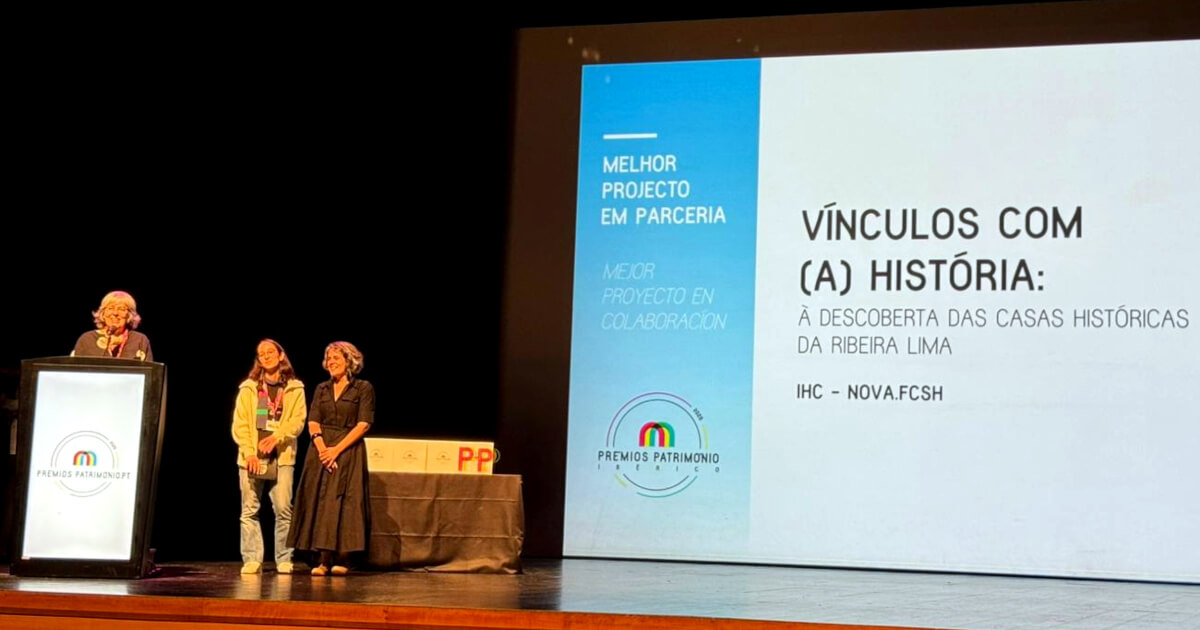 It was the winner of the Best Partnership Project
It was the winner of the Best Partnership Project -
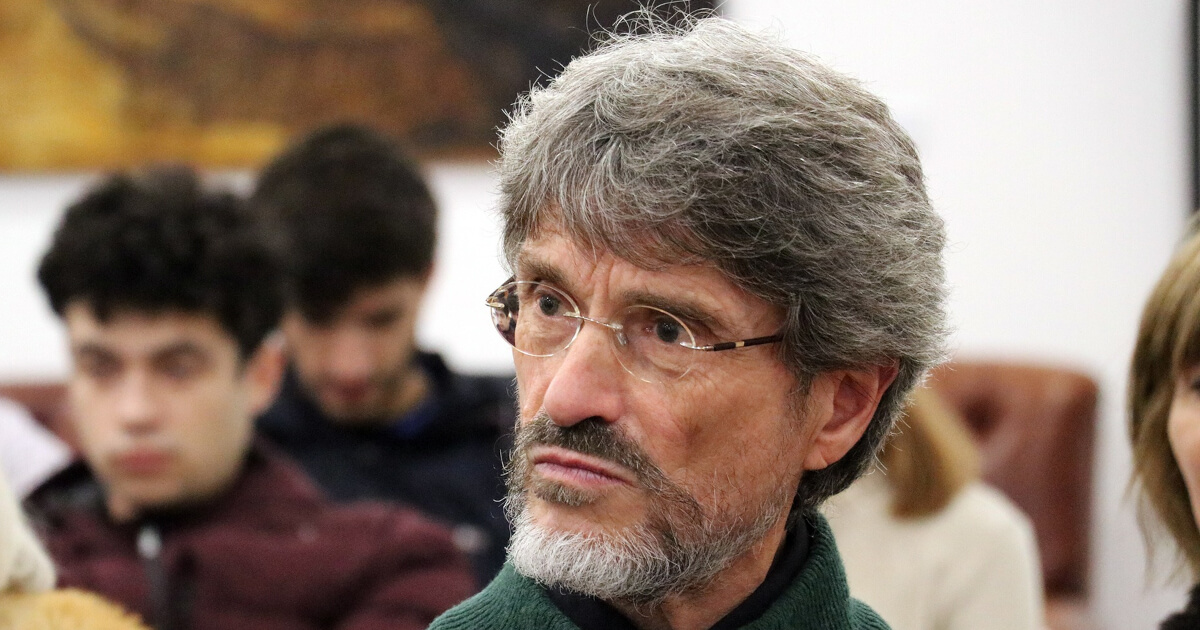 The commemorative session marked his retirement
The commemorative session marked his retirement -
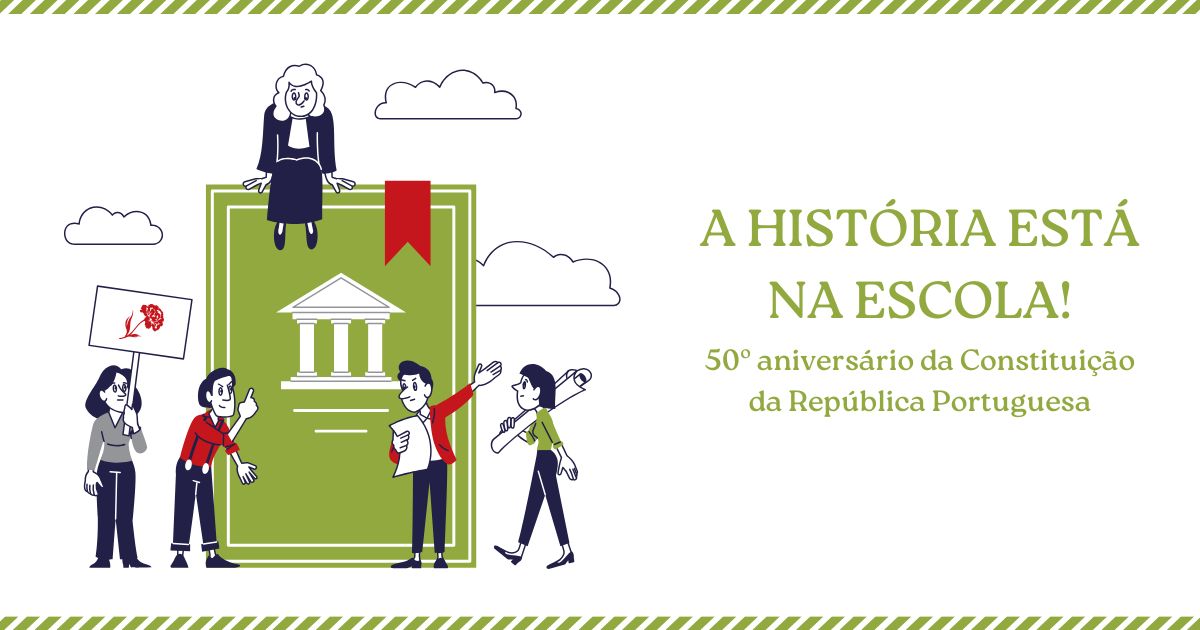 Programme aims to familiarise students with historical research and its tools
Programme aims to familiarise students with historical research and its tools -
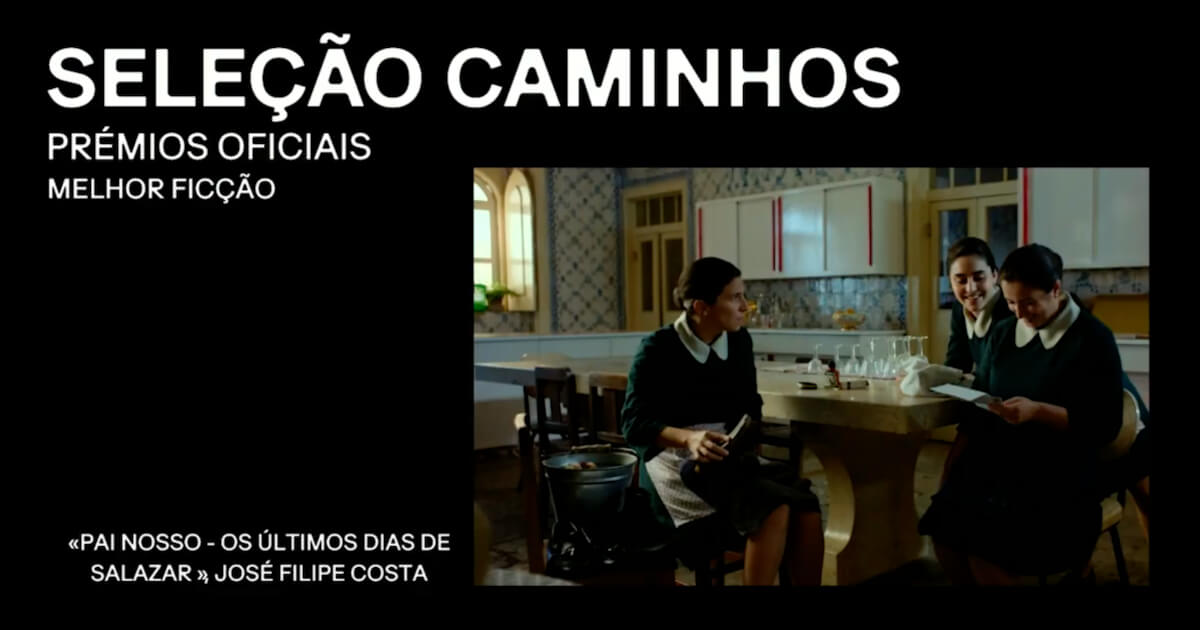 received three awards at the Caminhos do Cinema Português festival
received three awards at the Caminhos do Cinema Português festival -
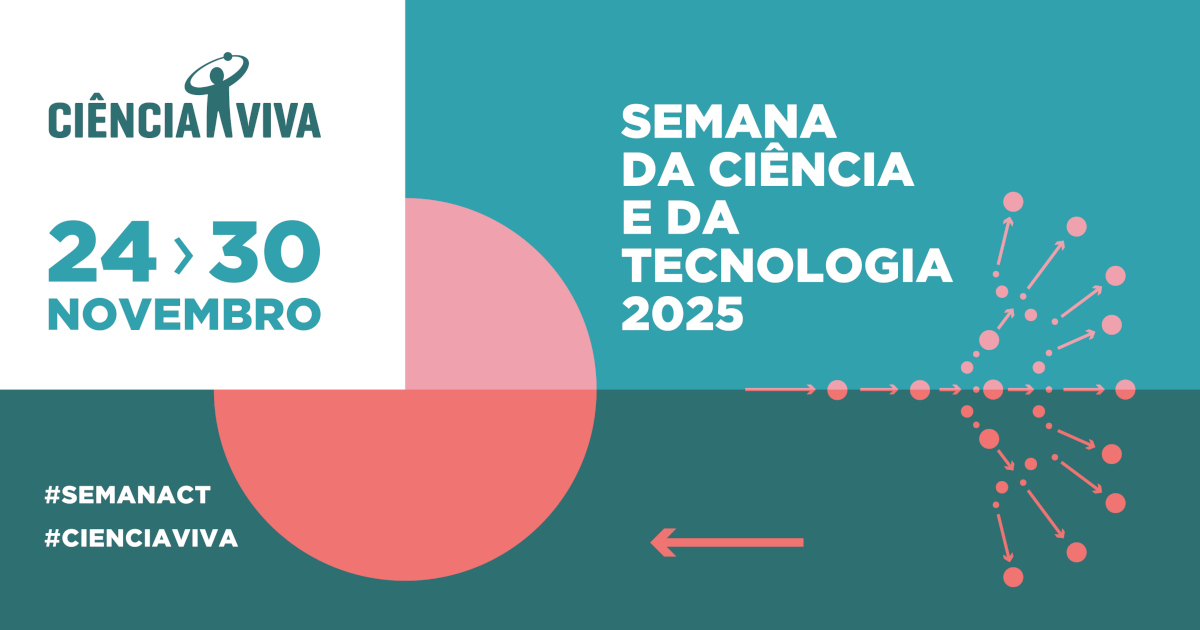 The two activities hosted by the IHC will take place on 25 November
The two activities hosted by the IHC will take place on 25 November -
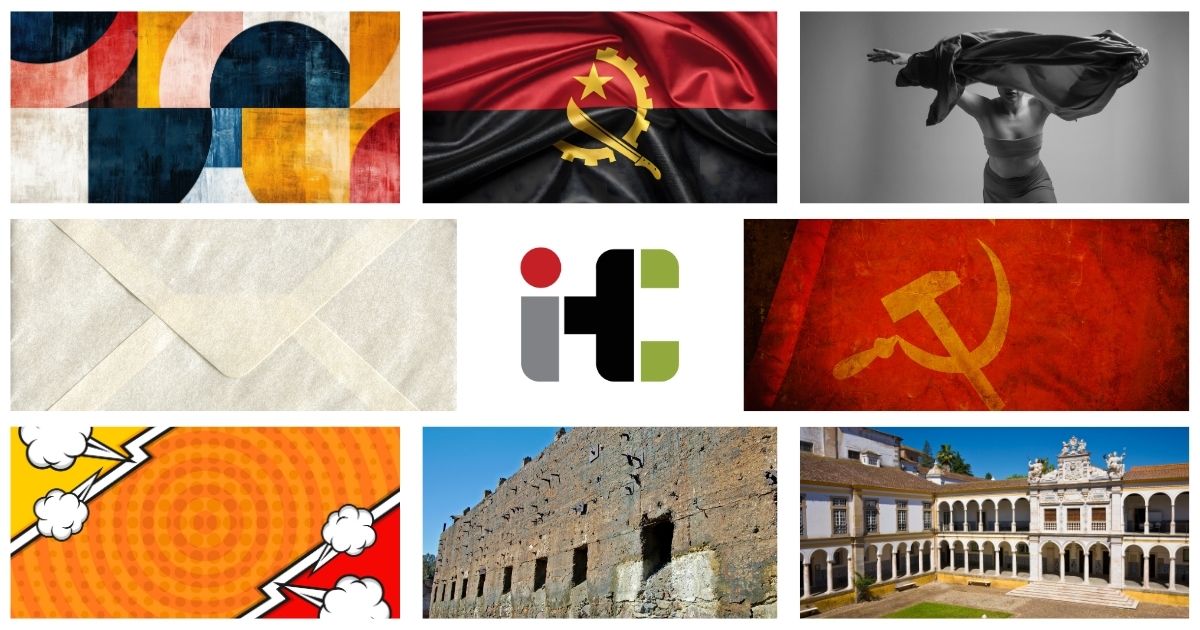 The IHC supported applications for four different PhD Research Scholarships calls
The IHC supported applications for four different PhD Research Scholarships calls -
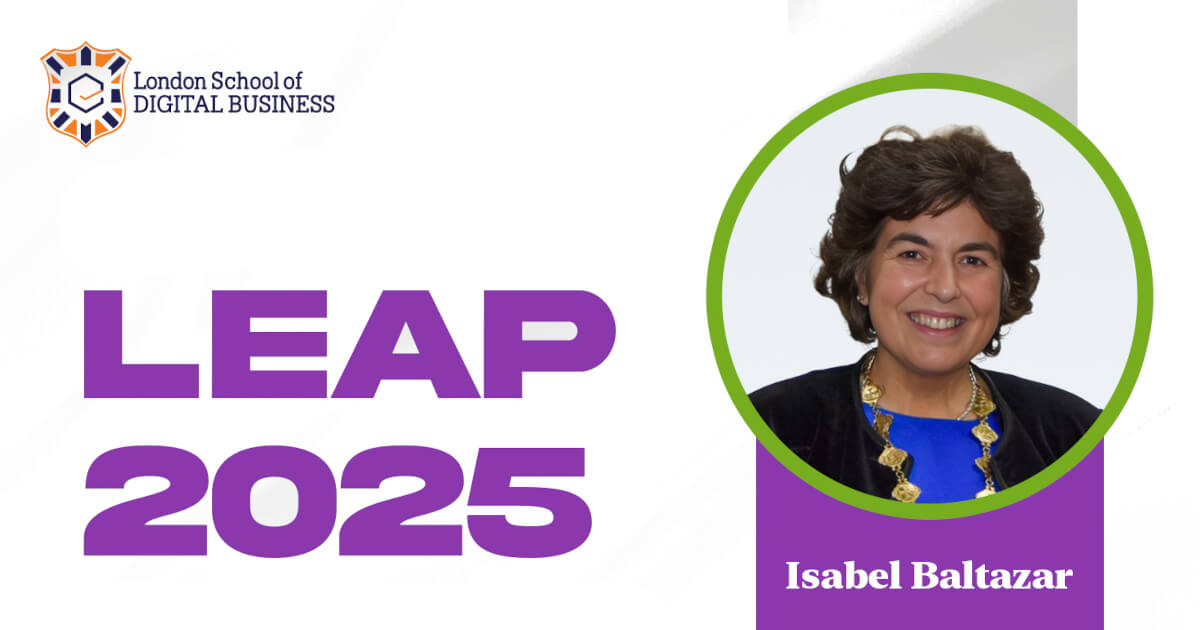 Isabel Baltazar was honoured at the International Educational Awards
Isabel Baltazar was honoured at the International Educational Awards -
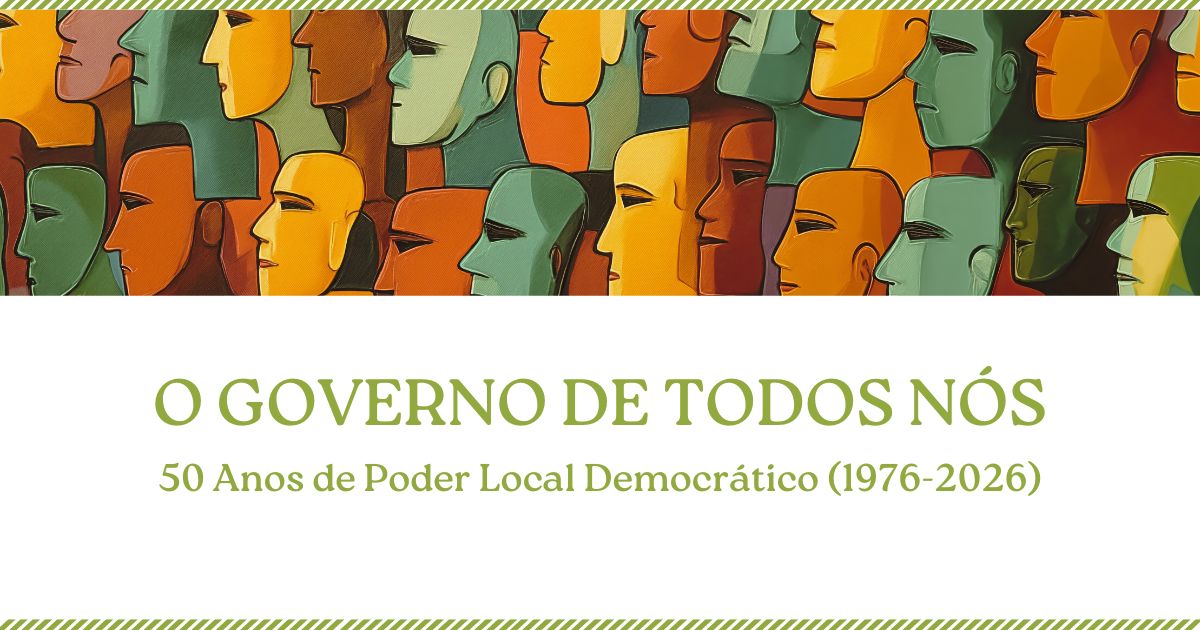 The Government of Us All. 50 Years of Democratic Local Government (1976–2026)
The Government of Us All. 50 Years of Democratic Local Government (1976–2026) -
 ‘Links with History: discovering the historic houses of Ribeira Lima’ was the nominated initiative
‘Links with History: discovering the historic houses of Ribeira Lima’ was the nominated initiative -
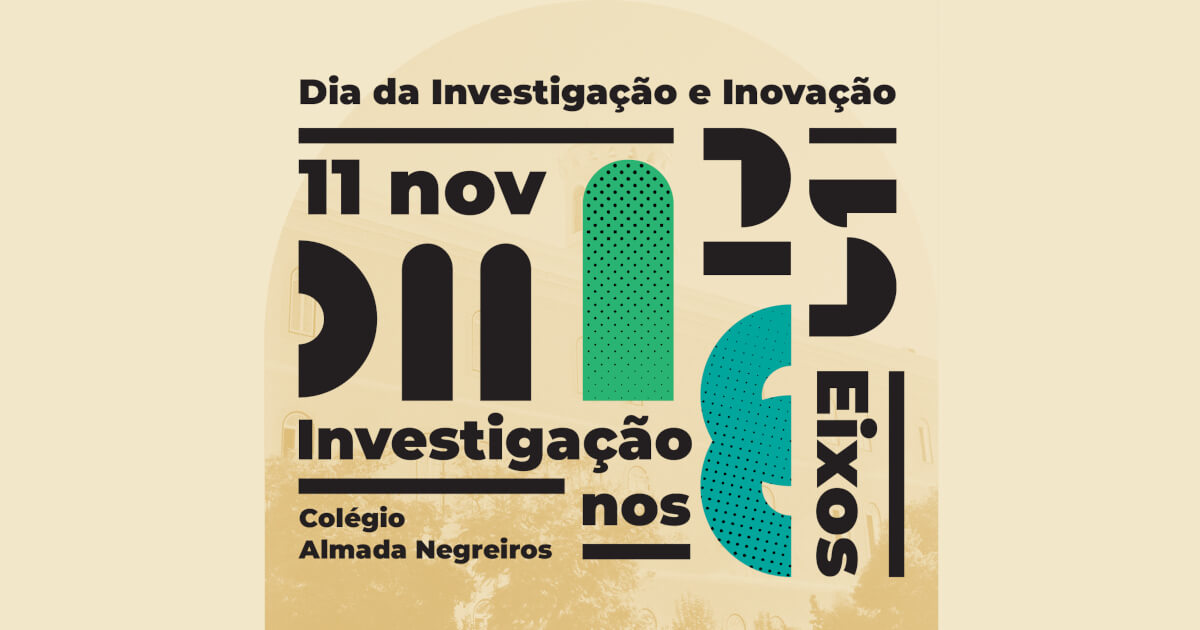 FCSH will celebrate its Research and Innovation Day with the theme ‘Research on Track’
FCSH will celebrate its Research and Innovation Day with the theme ‘Research on Track’ -
 Mélanie Toulhoat was invited to join the DEGESUD team — Decentering the “sciences of childhood”
Mélanie Toulhoat was invited to join the DEGESUD team — Decentering the “sciences of childhood” -
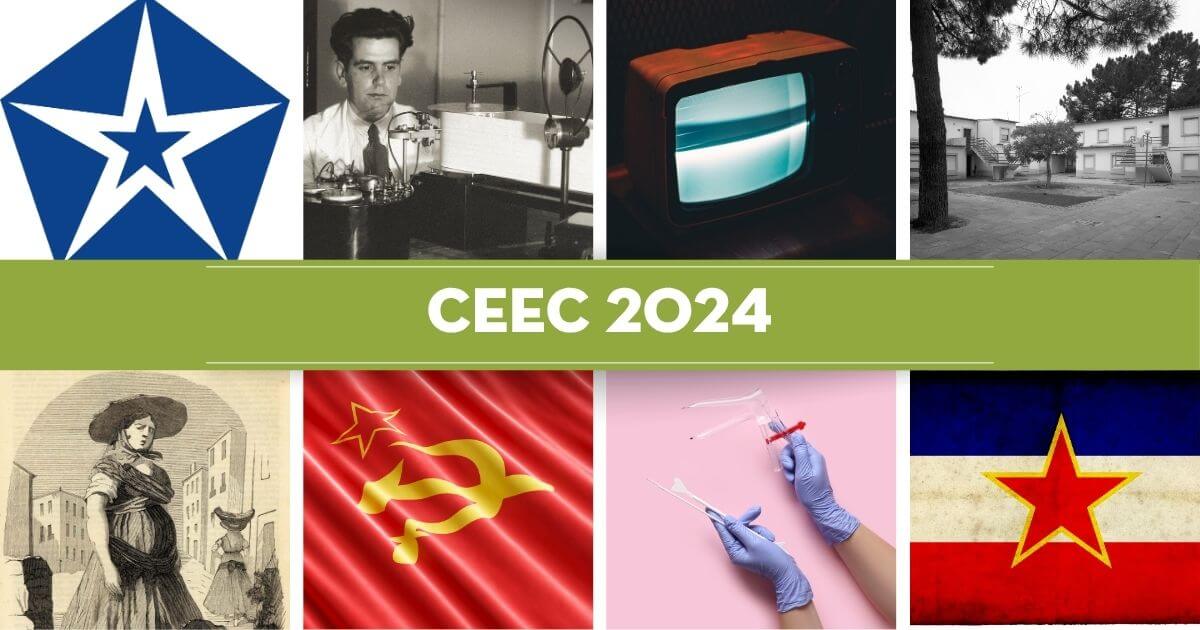 New research contracts: four in the Junior category and four in the Assistant category
New research contracts: four in the Junior category and four in the Assistant category -
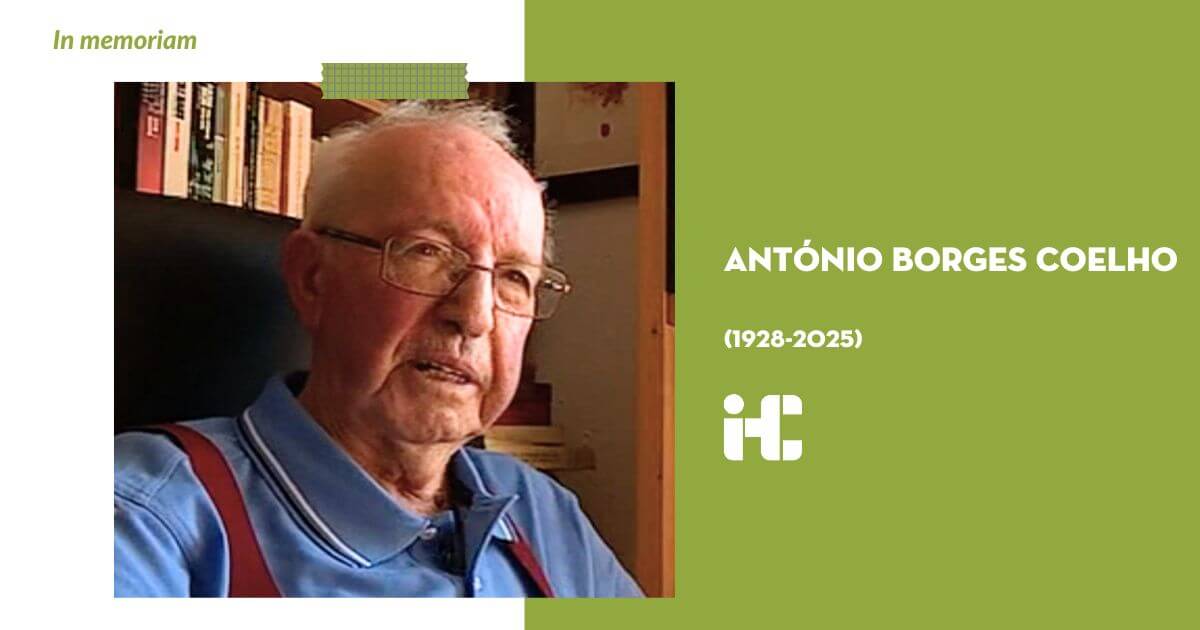 Statement of condolence from the Boards of IHC, IEM and CHAM
Statement of condolence from the Boards of IHC, IEM and CHAM -
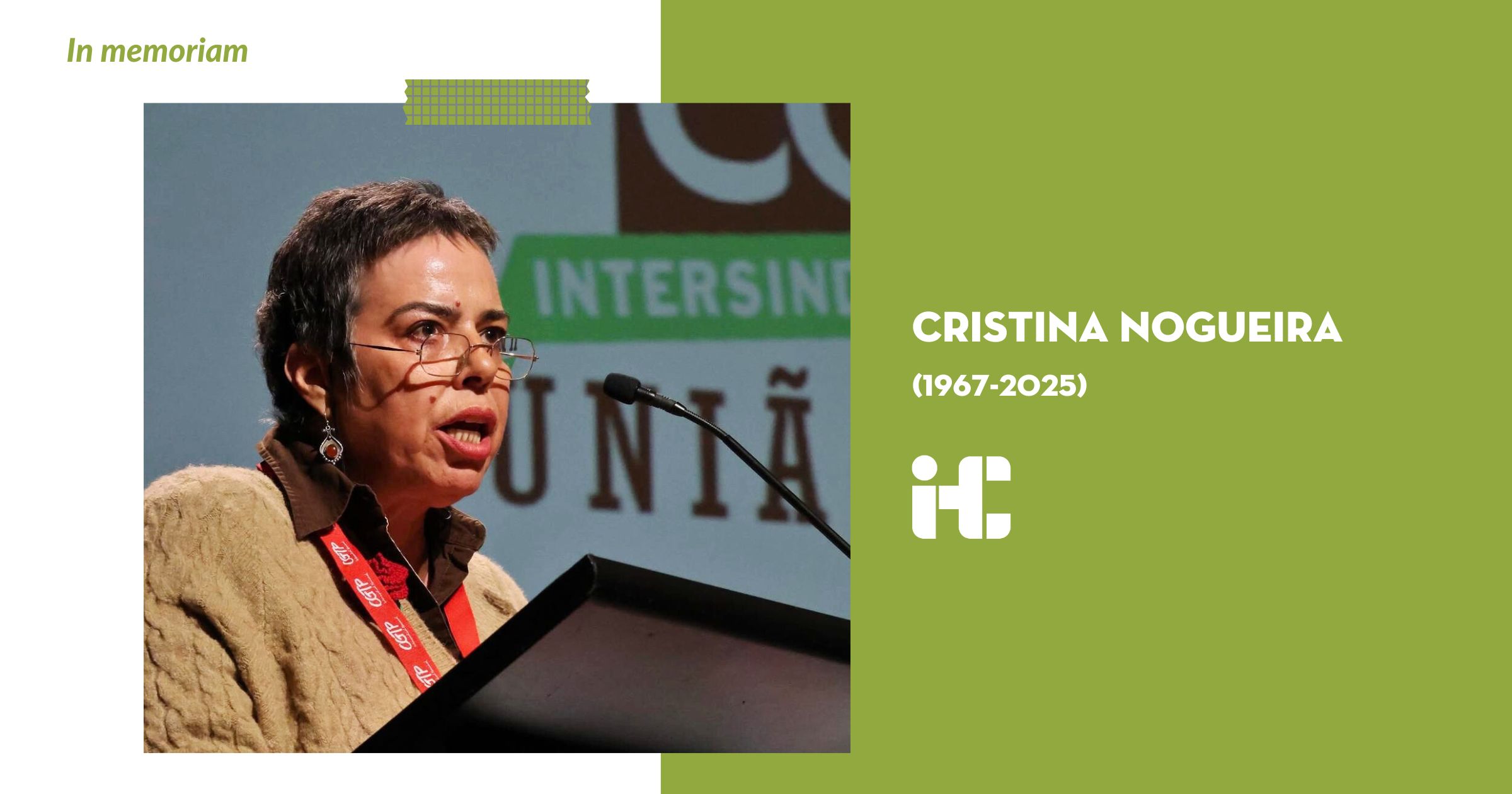 Note of condolence on the passing of researcher Cristina Nogueira
Note of condolence on the passing of researcher Cristina Nogueira
Search
Opportunities
Junior Researcher — STEXEU Project — DE
Deadline: 26 January 2026
Call for applicants — Three-Years Research Contracts
Deadline (IHC): 15 December 2025
News
IHC hosts eleven new permanent contracts
Jan 21, 2026
IHC’s efforts to consolidate scientific careers
Matt Cook is the IHC Visiting Scholar for 2025–2026
Jan 13, 2026
Distinguished social and cultural historian from the University of Oxford
IHC dedicates film cycle to Frantz Fanon
Jan 9, 2026
Film cycle focusing on the relationship between his work and this art form

